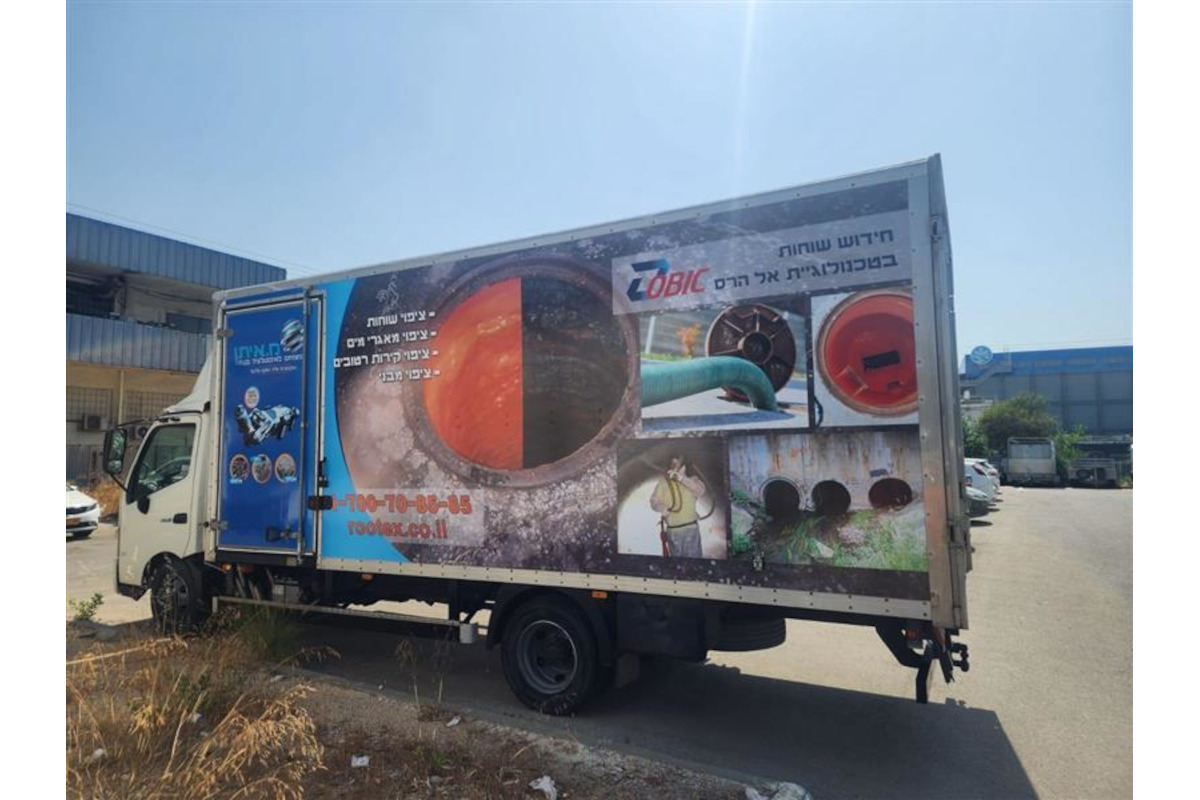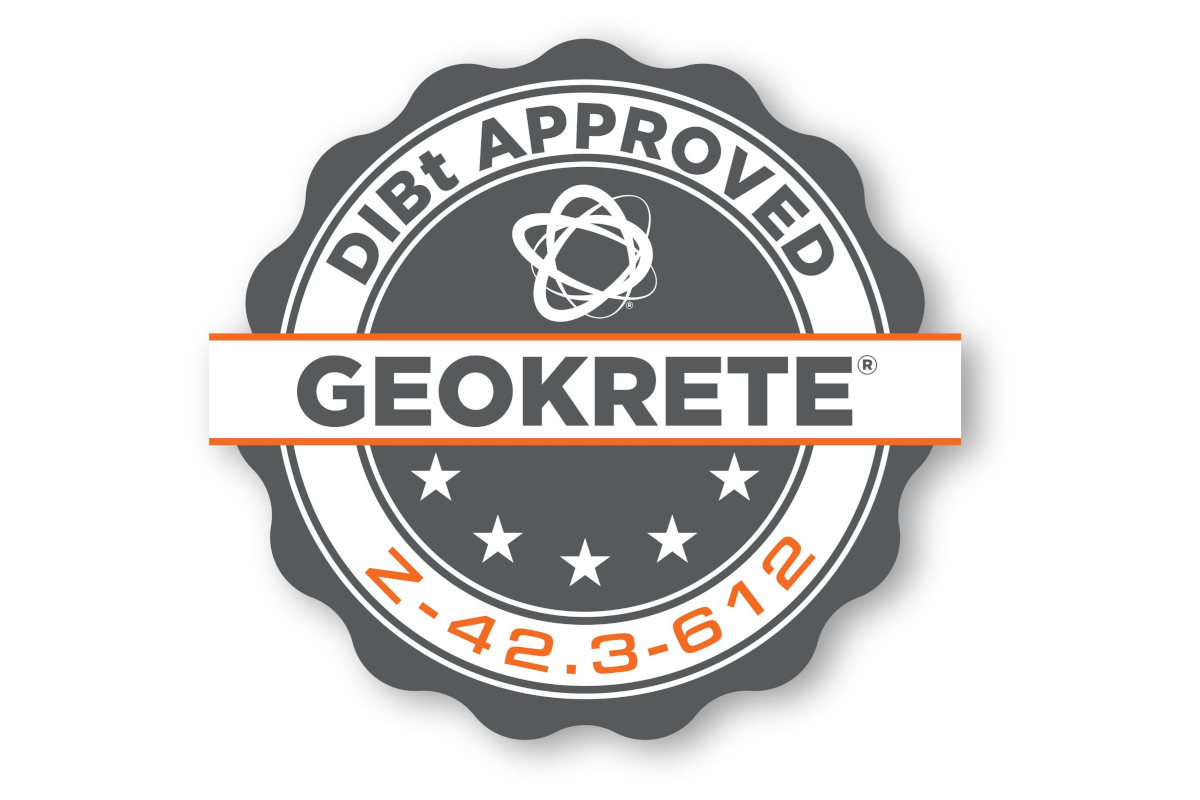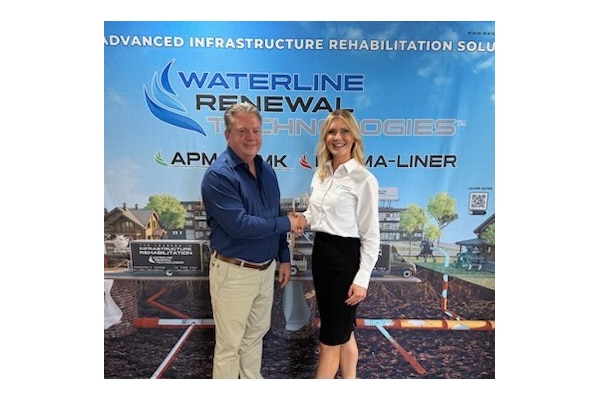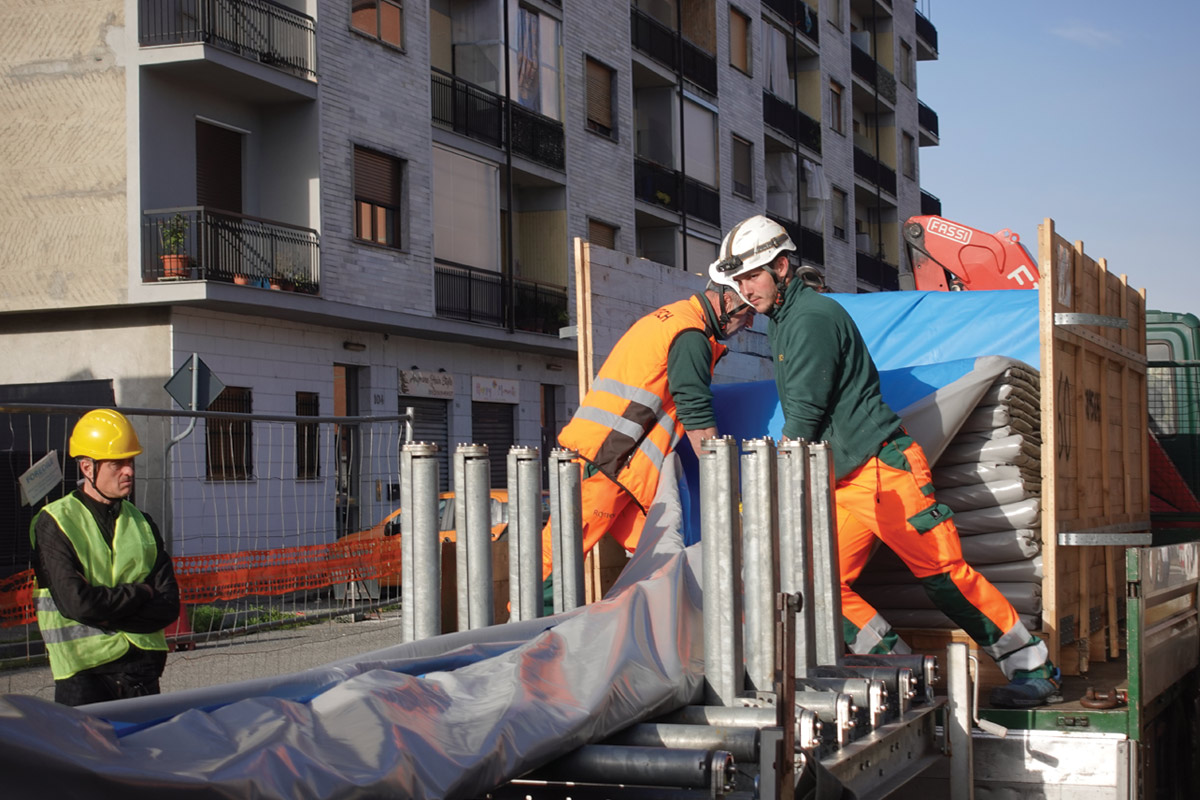Joining Forces
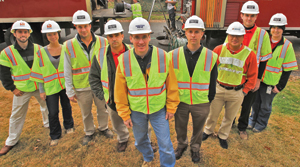 ARCADIS and Malcolm Pirnie are not new names to the engineering community or the trenchless market. Both companies have worked hard to create upstanding reputations in the industry — complete with consistent client bases that keep coming back for more. And in 2011, the two companies will officially become one.
ARCADIS and Malcolm Pirnie are not new names to the engineering community or the trenchless market. Both companies have worked hard to create upstanding reputations in the industry — complete with consistent client bases that keep coming back for more. And in 2011, the two companies will officially become one.
“ARCADIS and Malcolm Pirnie staff are equally excited about joining forces to become a global force in the water business,” says Steven Kramer, senior vice president, ARCADIS U.S. “Our success will be derived from our common cultures, the values that we believe in and the strength of our mission: Improving quality of life by creating innovative and enduring solutions that enhance the built and natural environment.”
With global reach and dedication to local service, both companies share a client-focused business model as they move forward under the ARCADIS name. As an international company, ARCADIS provides consulting, design, engineering and management services in the fields of infrastructure, water, environment and buildings around the globe. With $2 billion in revenue and 15,000 employees, the company has an extensive international network that is supported by strong local market positions.
Malcolm Pirnie Inc., a wholly owned subsidiary of ARCADIS U.S., has more than a century-long history of consulting with a concentration on water and the environment. With 1,600 employees across the United States and worldwide, the company provides water and environmental consulting services to both public- and private-sector clients.
“Our public-sector clients range from small municipalities to large cities, state agencies and agencies of the United States and other governments,” says Sandy Robinson, vice president of Malcolm Pirnie. “In the private sector, our industrial clients range from single-plant manufacturing facilities to Fortune 500 companies with locations worldwide. Regardless of size, every client receives personal attention and responsive service from a dedicated client service manager with a carefully selected project team.”
Making the Merge
In July 2009, the integration between ARCADIS and Malcolm Pirnie began — combining the two very successful operations. As a rule, ARCADIS takes a thoughtful and long-term approach to integrations, which allow the individuals within the companies to get to know each other and create long-term positive synergy between the organizations. In January 2011, the two organizations will be operating as one company with a joint management team. To successfully complete the merger, the goal has been to maintain the integrity and rich histories of both companies.
“Since both firms have more than 100 years of operating history, we have given much thought to each company’s brand and to ways of preserving the brand in the marketplace going forward,” says Kramer. “Malcolm Pirnie has a special identity for excellence and technical leadership in the water and wastewater industry that is important to our future growth.”
According to the companies, one important factor in the merger is the importance both ARCADIS and Malcolm Pirnie place on capturing and preserving “best practices” so that the resulting organization is greater than the sum of its parts. To strengthen this sentiment, the integration process has focused a lot of time and effort to identify and evaluate those processes and systems that will be incorporated or enhanced in the new organization.
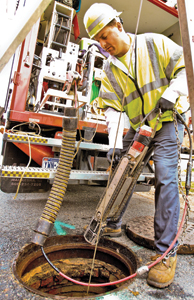
“The merger with Malcolm Pirnie allowed us to expand the Water Division significantly by taking advantage of their long and successful history in the water and wastewater industries,” says Kramer. “The global reach of ARCADIS will provide a platform for Malcolm Pirnie to deploy expertise in water and wastewater to many new markets outside of the United States, while exposing our U.S. clients to emerging international technologies and innovation.”
Monitoring the Market
Although ARCADIS and Malcolm Pirnie have been successful in the trenchless market, both Kramer and Robinson agree that there are challenges the industry continues to face. Despite being around for more than two decades, the trenchless industry constantly needs to evolve its practices to take advantage of the proven technology the market has created.
“The trenchless market is now in the next phase of the product cycle,” says Kramer. “It has become a more mature technology, having now been applied for more than 20 years. The challenge for the trenchless business is to continue to expand and apply new processes and techniques.”
Another obstacle the industry encounters is the inability to maintain a steady stream of skilled workers. Even though the cutting-edge technology may be available, contractors are having difficulties finding sufficient staff.
“There is also a limited, experienced construction staff, which is key to the success of trenchless technology applications,” says Robinson. “As most trenchless works are field-manufactured processes, it takes smart people capable of assessing the myriad of variables encountered during construction and accommodating them as the works are constructed. These folks are hard and are becoming harder to find. As the trenchless market continues to expand in the next 10 years, the lack of smart, hardworking construction foremen and team members will slow the availability of trenchless or even jeopardize the reputation of trenchless. Our resource management teams will implement internal construction role mentoring and provide training modules that transition young, enthusiastic staff to important field positions.”
Similar to other industries, the trenchless market has been impacted by the struggling economy. With budgets and financing for projects depleting due to the recession, utilities are having trouble securing the funds to properly repair their infrastructure.
“The infrastructure and water businesses in the United States have been seriously impacted by the recession,” says Kramer. “Most parts of the country have greater needs than their budgets support and municipalities have to do more with less. This has created an environment where creative solutions and financing are needed. Some municipalities are more aggressively using various forms of alternative project delivery [APD] to better manage risks and shorten the delivery time. This may include design-build, construction management at risk and, in some situations, public-private partnerships. Regions that have received large federal funding or are less impacted by the recession are the most attractive. This includes regions in Louisiana, Texas, greater Washington, D.C., area and some parts of California.”
Robinson points out that another challenge in the industry is the lack of validation testing and certification for the numerous diagnostic and rehabilitation technologies associated with buried infrastructure. With technologies being developed all over the globe, it’s important that these new advancements are tested and approved under one unified standard.
“To capture all of the current technological advances occurring here and overseas, we need a central clearinghouse that allows technologies to be rated to an industry standard that everyone understands,” says Robinson. “This could be supported through the Buried Infrastructure Management Institute — International [BAMI-I], but it requires affiliation from all the other competing technical associations to become a reality. Too often, utilities accept whatever the contracting community offers without really understanding what has been specified or purchased.”
Staying Ahead
To combat the challenges and other competitors in the marketplace, ARCADIS has strived to keep its business focused on the services it provides and the clients it has maintained relationships with through the years. One important business practice has been to keep its services streamlined and to avoid branching out into too many endeavors — sticking to what it knows best and providing top-notch professional services.
“We are a global company that provides consultancy, design, engineering and management services in our core business lines,” explains Kramer. “Unlike some of our competitors who have expanded into providing construction, we have continued to be a provider of only professional services. We are not trying to be everything and therefore can be a trusted advisor to our clients.”
Kramer notes that ARCADIS is also a “client-focused” firm that chooses its clients carefully and puts its clients first. With client loyalty like that, ARCADIS is often rewarded with a dedicated market base and a consistent level of backlog. On top of that, 94 percent of Malcolm Pirnie’s business comes from repeat clients.
To help with client interaction — both with new customers and existing ones — the companies rely on networking. In order to do so, ARCADIS and Malcolm Pirnie explore different avenues to reach out to these important business contacts.
“Networking is very important to our business going forward,” says Kramer. “Malcolm Pirnie has always done a great job of participating in industry and technical associations and trade shows. The new organization will continue and enhance this participation to brand the firm and to showcase our technologies and client-focused approach to project delivery.”
Malcolm Pirnie’s Red Oak Consulting Division, a utility management consulting group, also employs another interesting networking activity — a lunch time session with regional utility managers called “Views from the Lunchroom.”
“This is an opportunity for utility leaders to gather in an informal session for a facilitated, often lively discussion on the common issues that are creating their greatest challenges during this slow economic period,” says Robinson. “The results of over 10 of these sessions conducted around the company are summarized annually in a report that receives national attention. These lunch time sessions are accompanied by breakfast forums that Red Oak Consulting conducts at the Annual Utility Management Conference (UMC), jointly sponsored by AWWA and WEF, to consolidate perspectives on the hot utility topics of the day. In 2011, Red Oak Consulting will host a half-day workshop at the UMC about visioning for utility management success.”
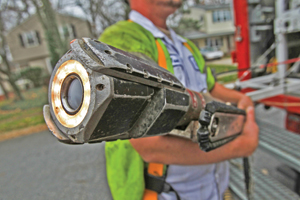
“In the United States, we also have Technical Knowledge and Innovation [TKI] groups within each division where designated technical and market leaders provide the latest thinking and most appropriate resources into projects and proposals,” he adds.
As for Malcolm Pirnie, Robinson notes that clients are looking for innovative and creative ways to apply new technology or to apply technology that is used in one market to another. With that, the company explores different ways to apply a technology in a previously unexplored application. Through Malcolm Pirnie’s Applied Research program, the company participates with universities and clients on projects funded by dedicated research organizations, as well as reserve a modest amount of self-funding to piggy-back on existing work if there’s an R&D opportunity that needs additional exploration.
“We spend a tremendous amount of time working with manufacturers and technology developers, both in the United States and in Europe,” says Robinson. “Much of this contact is initiated at technical conferences like the No-Dig Show, the Pumper Show, IFAT and WEFTEC. When we become aware of new technologies, we engage in technical discussions, seeking those technologies that have actual test data to substantiate their performance claims. This is typically followed up with a factory visit to understand how the products are manufactured and field installation visits to appreciate the realities of getting a good installation. We’ve seen many products that look good on the convention floor or in the factory, but whose field installation process is unreliable or subject to too many variables to obtain a consistently good product.”
As 2010 nears its end, ARCADIS and Malcolm Pirnie look ahead to the New Year as one, unified company. With a strong history and presence in the market, the company can look to 2011 and the goals it hopes to accomplish within the water industry.
Pam Kleineke is assistant editor of Trenchless Technology.

